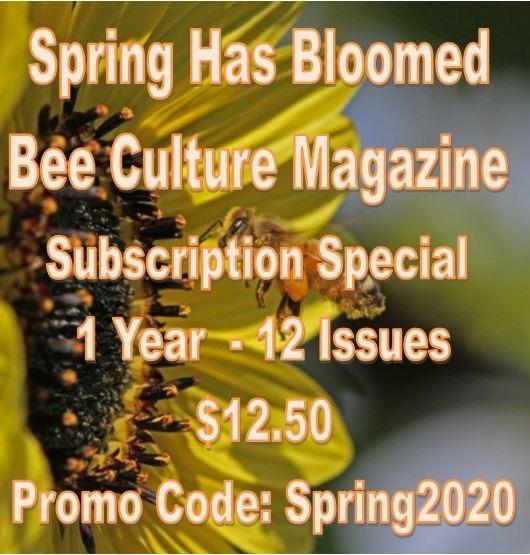How Maine Beekeepers are Helping to Improve Bee Production and Health Across the Nation
By: Julia Bayly, Bangor Daily News
Among the first flowers to bloom in the spring, dandelions are important food sources for Maine’s pollinators, including honey bees. (BDN)
STATEWIDE (BDN) — Few things can decimate an active honey bee hive like an infestation of Varroa mites or an outbreak of the Nosema infection. Both affect the bees’ eggs, larvae and pupae — collectively known as the brood — and hinder the healthy development of adult honeybees.
If left unchecked, both Varroa mites, which are an external parasite, and the fungal nosema can overwhelm the hive’s population causing disease, stunted growth of the maturing bees and death.
Early detection is the best defense against both. Through a national citizen science hive monitoring program, Maine beekeepers are helping to monitor Varroa mites and Nosema and contributing to a national database tracking the spread and impacts of the honeybee pests. The information is also being used to map strategies that work to control the mites and fungus. The data is mapped and available to be viewed online by the public.
The Sentinel Apiaries Program is a sort of early warning system for bee health, according to The Bee Informed Partnership, which began the program in 2016.
Participants monitor the health of their bees, the overall weight of individual hives and conduct month assessments of Varroa and Nosema on each hive. The goal is to collect enough data from sentinel apiaries around the country to establish trends that can alert beekeepers to increased disease, mortality or reductions in honey production.
Over time, the program will help in developing practices that help beekeepers improve the health of their bees.
In the meantime, beekeepers, such as Andrew Dewey of Jonesport, have noticed improvements in their apiaries after just one season of part of the program.
“Taking part [as a Sentinel Apiary] means you are closely inspecting your hives on a more regular and detailed basis than you may otherwise,” Dewey said. “And that helps you catch any issues early on and take preventive action or treat the problems.”
In Maine, the program is run by Maine Bee Wellness, an organization which works with backyard and hobby beekeepers.
“Taking part in the Sentinel Apiaries [program] is a great way to find out what is going on in your hives,” said Dewey, a master Maine beekeeper and educator with Maine Bee Wellness. “It’s a way to collect a lot of great data and contribute to the national database.”
Dewey has participated in the program for the past five years with his 14 hives in his Jonesport apiary. As a sentinel colony, for six months Dewey regularly weighs each hive, inspects and records the overall appearance and health of each hive and collects any Varroa or Nosema samples. These samples are then sent to the laboratory at Bee Informed for processing.
This data aids in the study of Varroa transmission among apiaries, charts any correlation and other information of the symptoms and mortality of diseases and is entered into a national database that tracks any effects the health of the sentinel colonies are having on the landscape.
“By empowering beekeepers with data on their colony health, beekeepers have been able to make data-driven management decisions,” according to the Bee Informed website. “Participation from beekeeper [citizen scientists] has helped us build one of the largest continuous colony level databases in the world.”
This year Maine Bee Wellness will sponsor five Maine apiaries participating in the Sentinel Apiary Project with a $500 each for beekeeping expenses and membership fees to Bee Informed.
Acceptance is on a first come, first served basis, according to Dewey.
Last year there was one other Maine beekeeper in addition to Dewey participating in the program, from York County.
“I’d love to see more beekeepers be involved,” Dewey said. “I’d really like to see some from northern Maine and Aroostook County.”
To apply to become a Sentinel Apiary, beekeepers need to email info@mebw and indicate their desire to participate, prove they manage at least four honeybee colonies and that they are an experienced beekeeper.
https://wgme.com/news/local/how-maine-beekeepers-are-helping-to-improve-bee-production-and-health-across-the-nation
______________________________________________________________________________________________________________________________________








